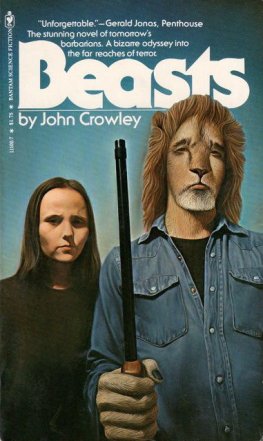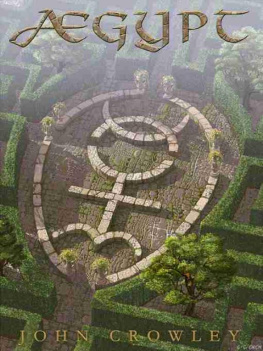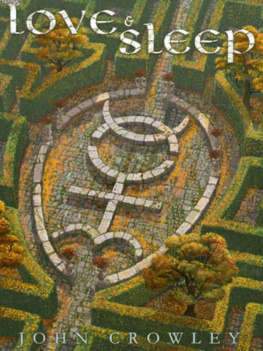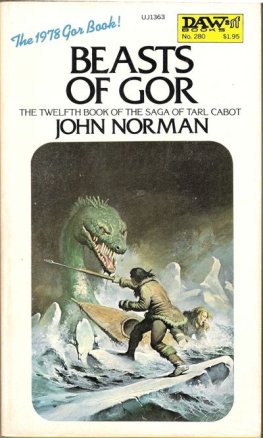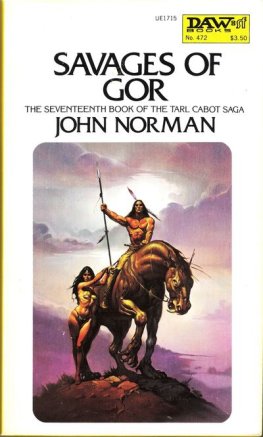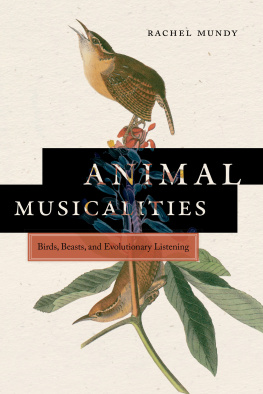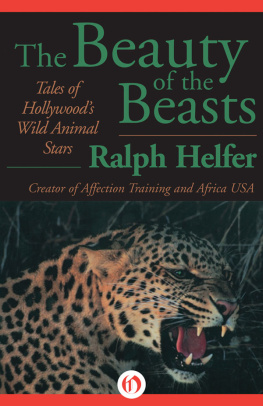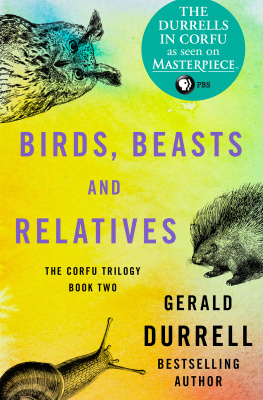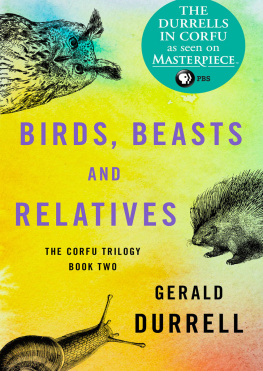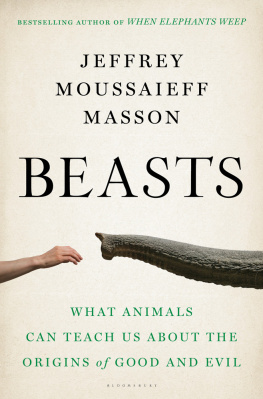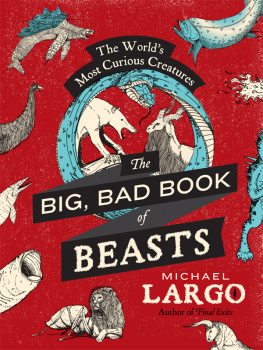John Crowley - Beasts
Here you can read online John Crowley - Beasts full text of the book (entire story) in english for free. Download pdf and epub, get meaning, cover and reviews about this ebook. City: New York, year: 1978, publisher: Bantam Books, genre: Science fiction. Description of the work, (preface) as well as reviews are available. Best literature library LitArk.com created for fans of good reading and offers a wide selection of genres:
Romance novel
Science fiction
Adventure
Detective
Science
History
Home and family
Prose
Art
Politics
Computer
Non-fiction
Religion
Business
Children
Humor
Choose a favorite category and find really read worthwhile books. Enjoy immersion in the world of imagination, feel the emotions of the characters or learn something new for yourself, make an fascinating discovery.
- Book:Beasts
- Author:
- Publisher:Bantam Books
- Genre:
- Year:1978
- City:New York
- ISBN:978-0553111026
- Rating:3 / 5
- Favourites:Add to favourites
- Your mark:
- 60
- 1
- 2
- 3
- 4
- 5
Beasts: summary, description and annotation
We offer to read an annotation, description, summary or preface (depends on what the author of the book "Beasts" wrote himself). If you haven't found the necessary information about the book — write in the comments, we will try to find it.
Beasts — read online for free the complete book (whole text) full work
Below is the text of the book, divided by pages. System saving the place of the last page read, allows you to conveniently read the book "Beasts" online for free, without having to search again every time where you left off. Put a bookmark, and you can go to the page where you finished reading at any time.
Font size:
Interval:
Bookmark:
John Crowley
BEASTS
For my mother
If thou wert the lion, the fox would beguile thee; if thou wert the lamb, the fox would eat thee; if thou wert the fox, the lion would suspect thee, when peradventure thou wert accused by the ass: if thou wert the ass, thy dullness would torment thee, and still thou livedst but as a breakfast to the wolf What beast couldst thou be, that were not subject to a beast?
TIMON OF ATHENS, IV, iii1
THE SHOT TOWER
Loren Casaubon thought of himself as a lover of solitude. He hadnt chosen fieldwork in ethology strictly for that reason, but he thought of it as an asset in his work that he could bear and believed he preferred the company of the wild and the inhuman. The old shot tower and its new ferocious inhabitants, which Loren was to spend a summer nurturing, suited him exactly. He had laughed aloud when he first saw it, responding immediately to its lonely intransigence: he felt he had come home.
Because it lay hidden in the last few folds of wooded hills before the low country began, the shot tower, despite its hundred-foot height, came into view without warning. It seemed to step suddenly out of the mountain granite and across the road to block the way; or to have stood up suddenly from sleep on hearing the approach of a man. For over two centuries it had had no human company. The vast lowlands pocked with marshes that slid from the mountains margins down to the sea, which the tower guarded as though it were the utmost watchtower of a mountain warlord, were inhabited only by wild things.
Whatever foresightless pioneer it was who had planned this marsh-aborted industrial development here so long ago had gotten no further than the tower and a few stone outbuildings. All that had been made of wood was gone now. The canal that he had counted on to bring him into touch with the rest of the manufacturing world had ended in bankruptcy forty miles away. He must have been more dreamer than businessman anyway, Loren decided when he first encountered the tower. It should have been a purely utilitarian structure, a factory for the making of lead bullets; its striking slim height was necessary only so that molten lead, poured through sieves at the top, had time as it fell to form into perfect round balls like leaden raindrops before striking an annealing tank of water at the bottom. But the builder had been unable to resist the obvious romantic associations his tall, round, granite tower had, and in fact had made a castle keep, grimly Gothic, with narrow, ogive arrow slits and a castellated top, It was a fake feudal keep in a new world, whose only true affinity with real castles was its reason for being: war.
That reason had long passed. The ingenuity of the tower and its lead shot had been long supplanted by more horrid ingenuities. It had had, until Loren came, no function but its absurd picturesqueness. Loren brought it a new purpose: it was to be a substitute cliff for four members of a nearly extinct race of cliffdwellers.
He could feel motion inside the cardboard box when he lifted it from the carrier of his bike. He put the box on the ground and opened it. Inside, the four white birds, quilly and furious, set up a raucous squawking. Alive and well. Biking them in had been harrowing, but there was no other way to get into the area; the rutted road had brought his heart to his mouth at every carefully negotiated bump. He laughed at himself now for his scruples. Healthy and strong as young devils, the four immature peregrine falcons, two males and two females, looked harmful and unharmable. Their fiercely drawn brows and hooked beaks belied their infancy; their crying was angry and not pitiful. They, of course, couldnt know that they were among the last of their kind.
The process of breeding peregrine falcons in captivity and then returning them to the wild a kind of reverse falconry, which in fact used many ancient falconers techniques had begun years ago in that rush of sentiment about wildlife and wild places that had rendered the word ecology useless. Like all rushes of sentiment, it was short-lived. The falcon-breeding program had been curtailed along with a thousand other, more ambitious programs but it had not quite died. The handling of feral birds was a skill so demanding, a challenge so compelling, that like the old falconry it had proved self-perpetuating. The small band of correspondents engaged in it were a brotherhood; their craft was as difficult, esoteric, and absorbing as that of Zen monks or masters of Go. Their efforts were, almost certainly, all that kept peregrines in existence; just as certainly, if they stopped, extinction would follow. The falconers were too few; and the birds they released were too few to find each other easily to mate once they were free. Some studies Loren had read put the survival rate for large aerial predators released from captivity at twenty per cent. Of these, perhaps a tenth mated and raised young. So, without Loren and the others, all sponsored by quixotic foundations or unguarded university departments, the falcon would disappear from this continent. The proudest and most independent of winged things had become, in an odd sense, parasitic to man.
Holding the box carefully level, Loren ducked through the arched door and into the tower. Inside, not even the spooky, narrow bars of dust-filled sunlight from the arrow slits could disguise the fact that this place had after all been a factory. The narrow spiral staircase that went up to the top was iron; it rang dully beneath Lorens boots. At various levels the iron struts of platforms remained; from each level a different size of shot would have been dropped: dust shot from forty feet, bird shot from higher, buck shot still higher; musket balls from the topmost platform, which was still intact, though a large section of castellated wall had fallen away and the platform was only half roofed. It was here that Loren had built his nesting box, a barred cage for the birds first weeks. He had placed it facing the gap in the wall so that the birds, even while caged, could look out over their domain.
The wind was strong at this height; it tossed Lorens thick, dark hair and tickled his beard. Without haste he opened the nesting box and one by one placed his four round feather-dusters inside. He could feel their quick heartbeats, and their young talons griped his hands strongly. Once inside, they ceased to cry out; they roused and shook down their disturbed plumage in miniature imitation of the way they would rouse when they were fully grown.
From his many-pocketed coat Loren took out the paper-wrapped bits of steak and the forceps. With the forceps he would feed them, and with the same forceps remove their droppings mutes to the falconer just as their parents beaks would have done. They gulped the raw meat hungrily, beaks wide; they ate till their crops were stuffed.
When he had finished, he locked the box and climbed to the gap. He stood there squinting into the wind, looking with his weak human eyes over the thousand acres of tree line, field, marsh, and sea coast that would be his falcons hunting ground. He thought he could see, far off, a faint white glare where the sea began. There were probably three hundred species of bird and animal out there for his birds to hunt: rabbits, larks, blackbirds, starlings, and even ducks for the larger and swifter females to catch. Duck hawk was the old American name for the peregrine, given it by the farmers who shot it on sight as a marauder, just as they called the red-tailed hawk a chicken hawk. A narrow perspective; certainly neither the peregrine nor the nearly extinct red-tail had ever lived exclusively or even largely on domestic fowl; but Loren understood the farmer. Every species interprets the world in its own terms only. Even Loren, who served the hawks, knew that his reasons were a mans reasons and not a birds. He looked around him once more, made certain that his charges lacked nothing, that their basin was full (they rarely drank, but soon they would begin to bathe), and then went clanking back down the iron stairway, pleased at the thought that he was settled in now, with a task to do, and alone.
Font size:
Interval:
Bookmark:
Similar books «Beasts»
Look at similar books to Beasts. We have selected literature similar in name and meaning in the hope of providing readers with more options to find new, interesting, not yet read works.
Discussion, reviews of the book Beasts and just readers' own opinions. Leave your comments, write what you think about the work, its meaning or the main characters. Specify what exactly you liked and what you didn't like, and why you think so.

